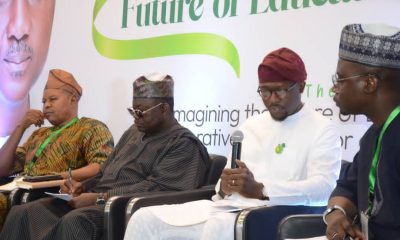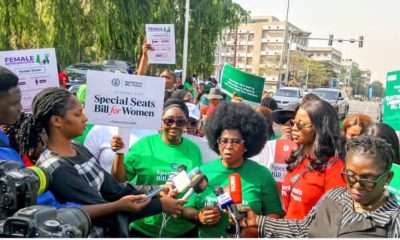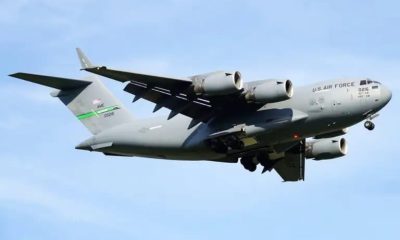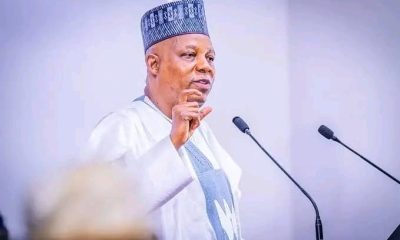Opinion
THE NIGERIAN JOURNEY BY DR AUSTIN ORETTE
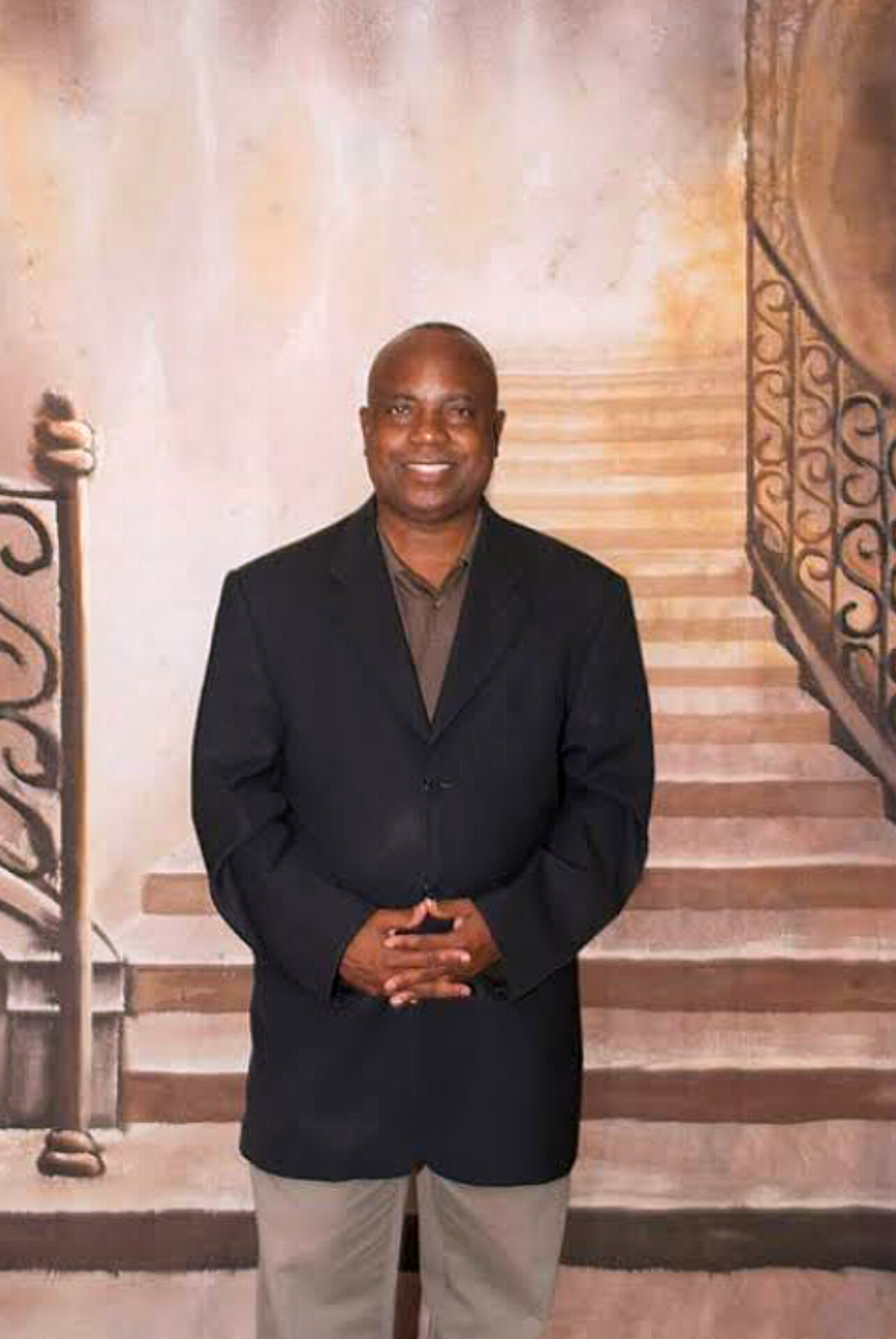
It takes time to form a country. It takes patience and dedication to change attitudes. When people from disparate places and cultures are brought together to form a Nation, it is never easy. In the long run, the tears and toil are worth it because the interactions lead to expansion of consciousness which drives human progress.
The journey of nationhood is not for timid souls. It was never easy for countries like India and China to rise. These countries have more divisions, ethnic, religious cleavages and groupings than we can ever imagine. The main thing that worked for them was that they never gave upstart military officers the chance to upend their civilian administration and throw their country into a fratricide war.
In times of distress, there are people in Nigeria who still look to the military for solutions. This is shameful. The military caused our problems. How did we arrive at this place where a lot of Nigerians still think the military have solutions to our problem? Are these folks’ victims of Military Induced Mental Retardation (MIMR) (pronounced Mama)? These people still think this way despite the overwhelming evidence to the contrary. This is the reason why the various legislative bodies have not seen it fit to abrogate the decrees of the military that ruled Nigeria on behalf of a certain group of people. This mentality is dangerous to our body politics. This is why a lot of these politicians pay courtesy visits to these soldiers of fortune that turned Nigeria into the Pariah nation.
MIMR is the reason the Nigerian lawyers don’t know their role in a democratic society. MIMR is the reason why we don’t have legal reforms. In a constitution that guarantees freedom of movement, the Nigerian is harassed daily on the highways by state agents.
Are we at war? Why is our freedom restricted? No lawyer has taken the government to court for this constitutional violation. This is pathetic. We need serious legal reforms. The method of appointing judges is very antiquated. We need to know the character of those who will be judges. Knowledge of jurisprudence should not be the only criteria. During the military years, the Nigerian lawyer played the role of stenographer for military decrees, and the judges took their decisions from the soldiers. Now they are playing almost the same role as politicians who have no idea why they were elected. They have abandoned the practice of law to become jesters at the feet of reckless politicians and conveyors of injustice at our courts. Our courts harbor judges who suffocate justice under their robes and consider military decrees of bygone era as a guild post for our state of jurisprudence.
All over the country, you see governors and other politicians seizing and damaging people’s properties without just compensation and there is no lawyer in sight to argue on behalf of the afflicted. A Dangote truck will damage and incinerate people on the highways, and no case is brought on behalf of the victims. The Nigerian Armed Forces go into a village for security duties and destroy the village, no justice for the victims. The governor pays a courtesy visit to the commander in chief. No lawyer files a lawsuit on behalf of the victim. The officer who issued the command to murder sleeping villagers is left to repeat the same scenario in another jurisdiction. We will protest if this happens in Palestine. It is happening in the Democratic Republic of Nigeria where the rights of the citizens are undermined daily by those they elected. These politicians did not gain power by a coup. If you listen to them with your eyes closed, you will think they are military officers who have just gained power through a coup d’etat. They don’t seek consensus. They give directives. Some of them defy court rulings with fanfare. The military infantilized everyone in Nigeria, but they pushed the lawyer back into the womb. This is atrocious.
As a nation, we must consider the fifty-five years of military rule in Nigeria as the years of locust. The journey of great nations is always evolutionary. The military years were the years when hatred of each other became ossified and personalized as the military played us against each other to prolong their power. The revolution is always a lie.
In history, most periods of revolutionary zeal turn to mirage. We will have good leaders, and we will have bad leaders. Each period is an opportunity to learn what to do and what not to do. The rush to think that some army general will appear and use a magical wand to achieve all we wish for is infantile and dangerous. No soldier can develop any nation. Nigeria is a testament to that foolery. It is the willingness of the people to understand the necessity to build bridges and lasting institutions of harmony that moves a nation forward. The rule of law is the cornerstone in this exercise. If we have the rule of law, the Nigerian will feel protected in any place he calls home. Ethnic crisis and tensions will dampen because he knows no matter what happens, the law will protect him from ethnic or religious vigilantism that is the breeding ground for timid souls that are still married to the past.
These people must be made to see the supremacy of the law as the sign of our progress. The journey is arduous, and our dream should be about building frameworks that last beyond our existence, because the nation that we dream of should always be a continuous journey of those who believe in tomorrow and understand that the yearning and aspiration of our people shall never die. This is all we can ask for as we toil in our little corner, to build tomorrow for the next generation.
We must strive to make tomorrow a brighter proposition for those coming after us. It is when we arrive at that place, we can say our work is done. This singularity is love that binds us beyond ethnic and religious proclivities, which robs us of our basic humanity. We can start this journey today and also understand that others who share the same aspirations with us may start their journey tomorrow. The wisdom we seek should give us the patience to know the difference and endure the pain and loneliness of waiting for those who are not ready today but will join us tomorrow.
For those who seek truth, justice and fairness, tomorrow is a distant horizon we must gaze at with hope, endurance and fortitude. Tomorrow is not a destination; it is a state of our being. The futuristic tomorrow may never come but our state of will be fulfilled and rewarded as our collective struggles will build monuments that last beyond our time. That is the tomorrow we seek, a place where our dreams will never die.
DR AUSTIN ORETTE WRITES FROM HOUSTON TEXAS



